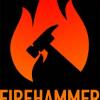Quote:Original post by EvilNando
Im sorry not to help with anything .. but I just wanted to say that I never heard of nodes and Im interested in knowing what they are
can u direct me to any tutorials bout this?
thanks a lot
Hi
Read about linked list and trees ( like binary tree )
Here at GameDev.net in articles check out Subcategory: Data Structures
http://www.gamedev.net/reference/list.asp?categoryid=25#266
and about linked list for example
http://www.google.pl/search?hl=pl&q=linked+list&btnG=Szukaj+w+Google&lr=
Cheers
[edit]
This link is even better [smile]
http://ciips.ee.uwa.edu.au/~morris/Year2/PLDS210/ds_ToC.html
[/edit]
[Edited by - Estor on September 15, 2005 6:50:43 AM]





